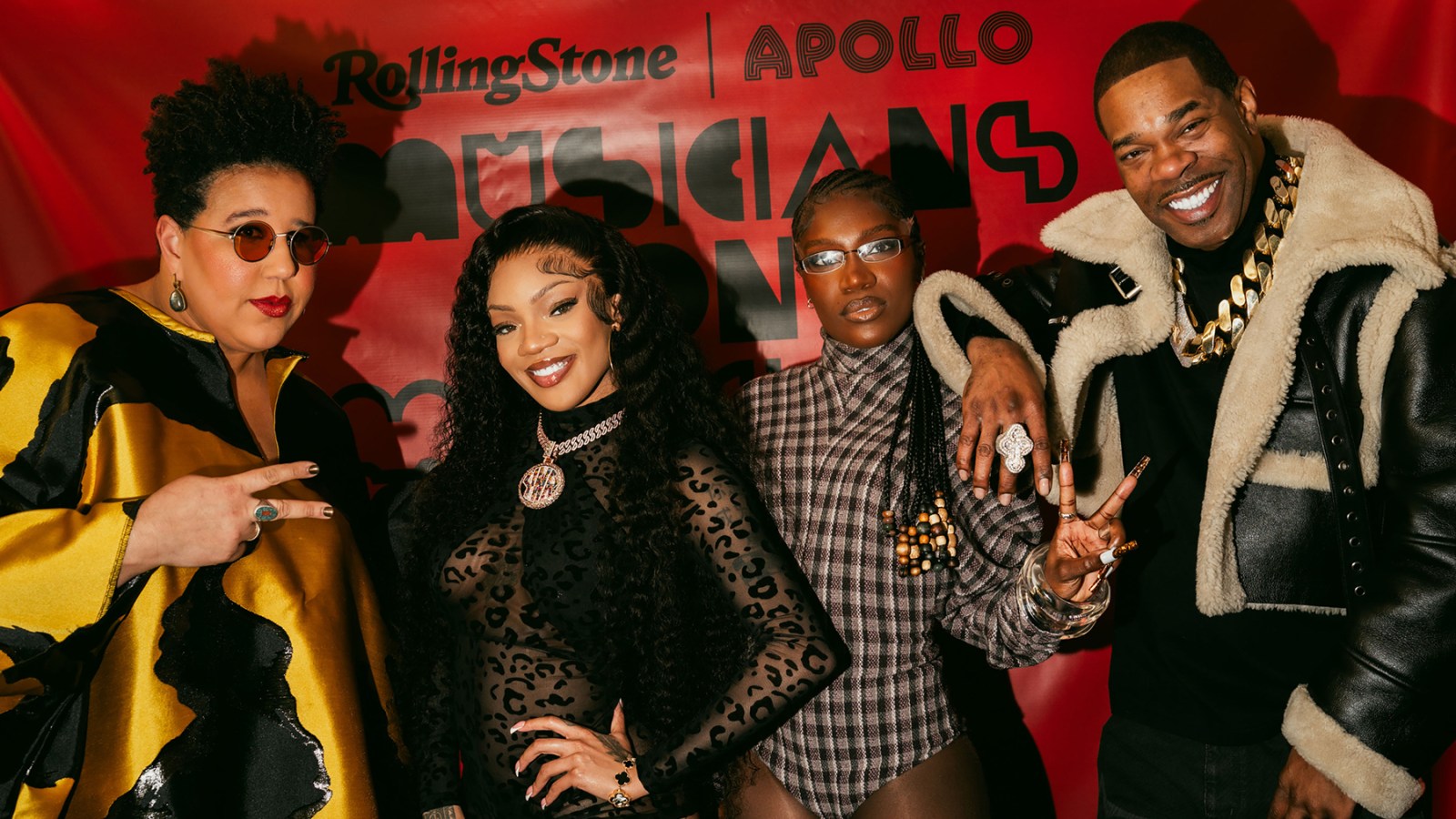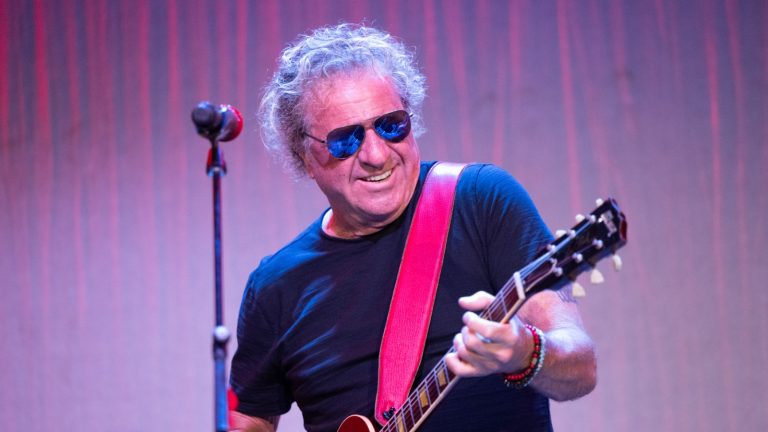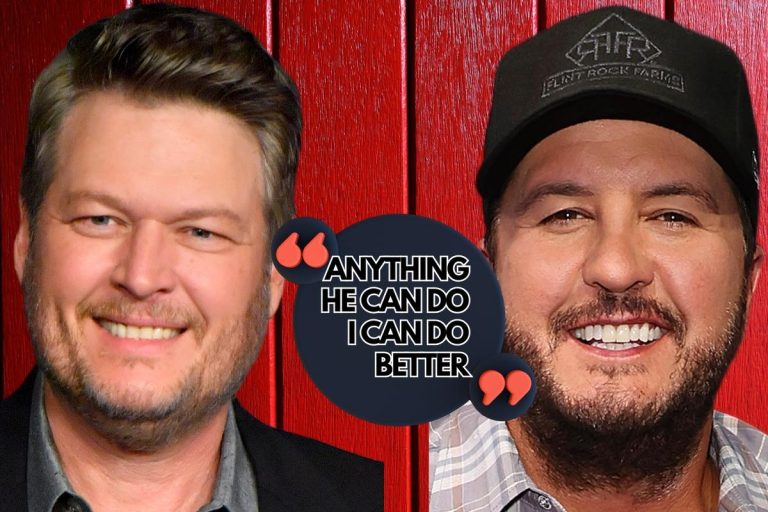On Friday night, the lobby of the Apollo Theater was filled with life-size photos of artists together, two by two: Lisa and Tyla, Reneé Rapp and Cynthia Erivo, Bruce Springsteen and Zach Bryan, and more. They were shots from Rolling Stone’s sixth-annual Musicians on Musicians issue, and on this night the franchise had taken over the historic Harlem theater.
Musicians on Musicians is where artists come together to interview each other, and at Friday’s sold-out event, that spirit of collaboration and conversation was palpable, live and in person. After a summer of live Musicians on Musicians satellite events in Chicago and Miami, Sonesta International Hotels partnered with Rolling Stone to present the evening’s program at the Apollo. The setup made the most of the Apollo stage, with a large cream couch on stage right and space for the night’s bands to play to the left. The event kicked off with the Apollo’s Senior Director of Programming, Leatrice Ellzy, greeting the crowd and letting everyone know that one of the night’s stars — Busta Rhymes — got his start at the Apollo more than 30 years before. (Busta, it turns out, was booed, though he turned the experience into fuel for a legendary career.)
The crowd was all love for the night’s performers, which began with a funked-out jam lead by the evening’s unsung hero, Louis Cato, who heads up the band for The Late Show With Stephen Colbert and served as musical director tonight. Cato and his band were onstage almost constantly, backing the performances and ensuring maximum good vibes. Rolling Stone CEO Gus Wenner took the stage to talk about the importance of Musicians on Musicians, noting that “it’s about collaboration and the mixing of genres and generations” while also shouting out the night’s tallest audience member, former NBA star Carmelo Anthony.
The night’s MC and moderator, Touré, came out to introduce the evening’s first pair of artists: Alabama-raised singer Brittany Howard and Florida-bred rapper Doechii. The Southern dynamos had a winding conversation where they lauded each other’s craft and traded lessons they’ve learned along their career path.
Touré began by asking Howard to offer Doechii some advice. “Always listen to your inner voice,” Howard told the rapper. She said when it comes to their intense live schedule, “sometimes we give it back a thousandfold, and some nights it’s taken away from us,” noting the important of “filling your cup back up.” Touré asked Howard about the “raw gumbo” of genres apparent in her sound, and she noted, “my music is a very emotional place, and that emotion always has a different soundtrack.” Howard then told the room that she’s enamored by being “curious” about the Doechii’s ambition: “I think you’re the kind of artist that can do whatever you want and take space whenever you want.”
Later in the convo, Doechii delved into how being a “theater kid” taught her imbue her music with character. She also said that stars like her aim to “disrupt” the music industry, which she says is one of her chief missions as an artist.
Brittany Howard and Doechii in conversation
Yè Fan for Rolling Stone
Doechii asked Howard where she was when she won her first Grammy. Howard replied that it was “a surreal” place from her days as a member of the Alabama Shakes band where they girls were “basically playing for gas money.” She then congratulated Doechii on her four Grammy nominations, which drew a loud applause from the crowd. “Right now I feel like I’m walking on the ceiling,” Doechii said. “I’m floating — which is a good thing, but I’m also like where is the ground?”
When Touré asked the two about being women in the industry, Doechii noted “It is a really good time,” but “there are challenges” in the male-dominated space. “I figured out how to be a leader, how to be stern and respectful,” she said. Howard added on by saying she once carried a “defeatist” stance about her potential in the industry, but realizes how things have changed. She noted not just the amount of prominent women artists, but the influx of women in powerful places throughout the industry.
With that, the talking was over, temporarily at least. Howard kicked into a rousing set, charging through full-throated versions of “Stay High” and Nina Simone’s “Revolution” in front of a band and backup singers. Howard crushed it, setting a high bar, but Doechii was ready to respond. The rapper, whose mixtape Alligator Bites Never Heal, is one of 2024’s best albums, followed up with an energetic set of her own, utilizing the full stage (in her heels) and getting the crowd so hyped they might’ve been heard in lower Manhattan. She was a master showwoman, getting the crowd to do the signature breathing exercise during “Denial Is A River” and having them recite every word to “Catfish.”
Touré reemerged: “Wow, that was crazy. Apollo, we are not done. We have two superstars right over there. Let’s bring them out.” And there they were: Glorilla and Busta Rhymes, two deeply original rappers from two different generations. Right off the bat, Memphis-raised rapper Glo noted what struck her about Busta: “How fast he be rapping. I could never do that. Like [does a wildly tongue-twisting Busta impression]. I could never do that. My tongue too big or something. How you do it? What’s the secret?” (The secret, in a nutshell: “relaxing.”)
The conversation was as freewheeling and personality-filled as Busta and Glo’s music, touching on everything from how Glo talks (“It’s just Memphis”) to how it felt when she saw Rihanna rapping her song “TGIF” to A$AP Rocky (“I’m telling you, I was so geeked”). Busta paid much homage to musical forbears, including reggae legends like Lieutenant Stitchie and Shabba Ranks, and clocked the historical importance of the music of Memphis.
And he brought it back to the present, talking about his desire to mentor younger artists: “It’s important that we walk in our purpose when we get to that place in our life as careers and as artists, that we walk in our purpose and we share and we pour into the souls of the new artists and make sure that they get that information. But obviously we got to use discretion because you got to be worthy of the blessing. I’m not just going to give it to you if I know you’re going to fuck it off, you feel me? Me and Glo connected. Her energy is a different type of beautiful.”

Busta Rhymes onstage
Yè Fan for Rolling Stone
Glorilla then took over the stage, flanked by two black-clad dancers and backed by a DJ and Louis Cato’s band. She romped through “Yeah Glo!” “TGIF” and “Hollon,” getting the Apollo up and dancing and arm-waving and generally losing it in the process.
Busta then reappeared, band still behind him, joined by his longtime hype man Spliff Star and DJ Scratch. Busta came out firing, doing his rapid-fire verse from “Look at Me Now,” a 2011 cut with Chris Brown and Lil Wayne that showed off the acrobatic rhymes that struck Glorilla. He proceeded to command the Apollo for a full half-hour of hits, vibes and reflections. Busta and Spliff banged through “Baby If You Give it to Me,” and “Put Your Hands Where My Eyes Could See” and led the crowd through a dance to his new track “Do The Busabus Pt. 2.” Busta challenged the audience to do the dance, mock-taunting that he’d single out crappy efforts on his Instagram (“And it’s not going to go on my stories, it’s going to stay on my main page forever”).
Throughout, Busta was chatty and reflective, philosophizing about the bluntness that comes with age and how “loyalty is a blessing not a burden.” He poked fun at his own speechifying: “I know i’m a longwinded motherfucker, but i’m passionate about every moment.” By the end of his set, after shouting out the night’s stars again, he’d made good on his on-stage promise: “I’m gonna give you your motherfuckin’ time’s worth.”




Leave a Comment